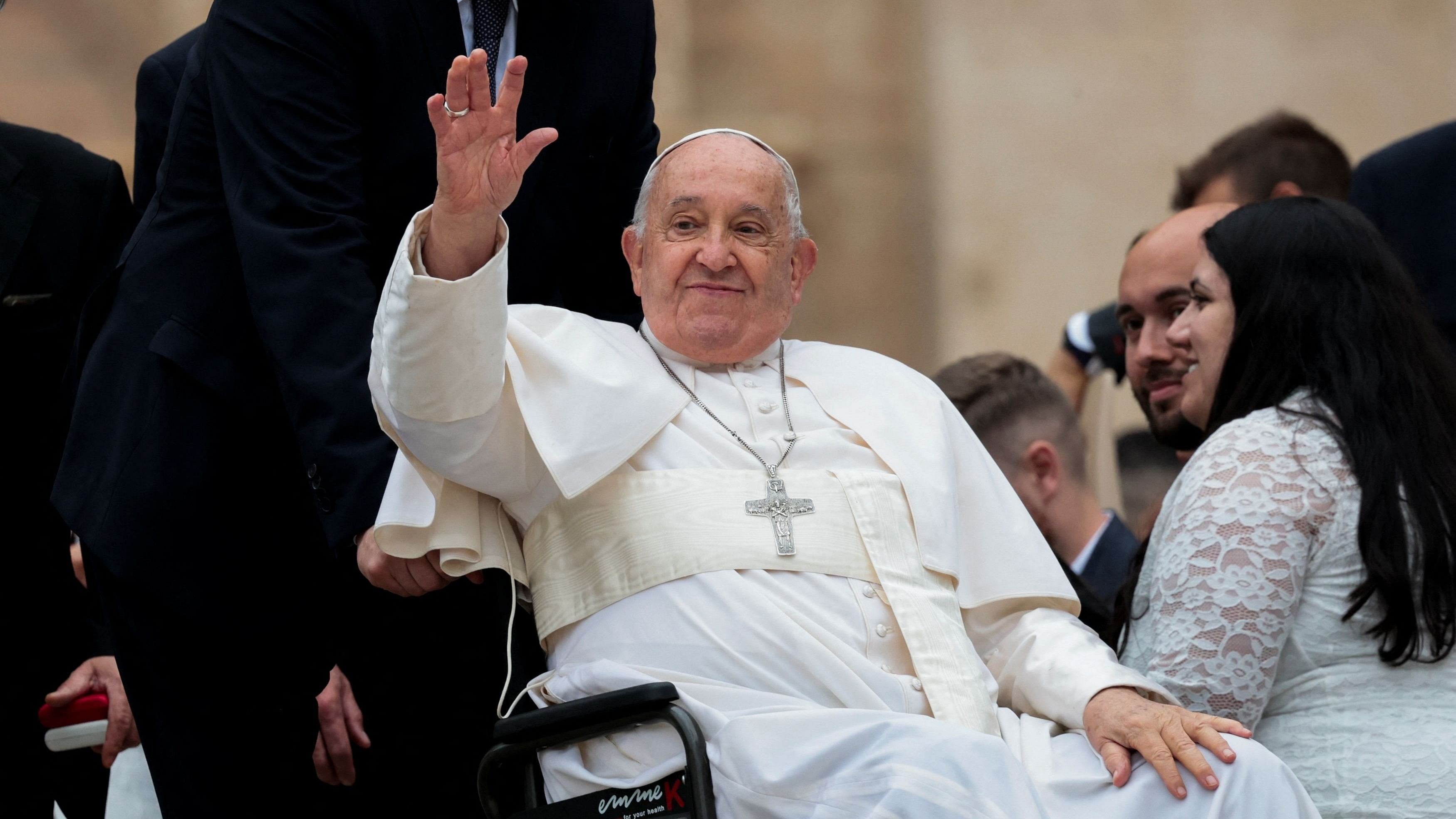
Pope Francis
Credit: Reuters Photo
Vatican City: Pope Francis urged the world's 1.4 billion Catholics to abandon the "mad pursuit" of money and instead devote themselves to their faith in a new encyclical letter, the highest form of papal teaching, released on Thursday.
Francis' fourth encyclical over his 11-year papacy largely abstains from talking about political issues, a departure from his earlier writings, which also addressed themes such as global climate change and "trickle-down" economic policies.
"Dilexit nos" (He loved us) instead encourages believers to strengthen their religious lives. The world is living in an "age of superficiality," the pope says, and Catholics and other Christians "need to rediscover the importance of the heart".
"In a world where everything is bought and sold, people's sense of their worth appears increasingly to depend on what they can accumulate with the power of money," Francis writes.
"The love of Christ has no place in this perverse mechanism, yet only that love can set us free from a mad pursuit that no longer has room for a gratuitous love," says the pontiff.
The 142-page text focuses on spiritual themes, rather than calls for concrete political action.
The pope's 2015 letter "Laudato Si'" (Praise Be) urged the world to care for the environment and has been credited by some world leaders with influencing discussions ahead of the 2016 Paris Agreement. His 2020 letter "Fratelli Tutti" (Brothers All) called for a reconsideration of economic policies in the aftermath of the global coronavirus pandemic.
The new letter instead offers reflections on a Catholic spiritual practice promoted by a 17th century French nun. Sr. Margaret Mary Alacoque, who reportedly experienced several visions of Jesus.
Christians should emulate Jesus' love by also caring for those in need, the pope says. "There is no greater way for us to return love for love," he states.
Release of the papal document comes as Francis is leading a month-long summit of global Catholic leaders at the Vatican, which is expected to release its own text on Saturday.
Discussions around most of the divisive issues originally part of the summit's considerations, such as the possibility of letting women be ordained as Catholic clergy, have now been put on hold.